
The Organisation armée secrète was a far-right French dissident paramilitary and terrorist organisation during the Algerian War. The OAS carried out terrorist attacks, including bombings and assassinations, in an attempt to prevent Algeria's independence from French colonial rule. Its motto was L’Algérie est française et le restera.

Rafael Leónidas Trujillo Molina, nicknamed El Jefe ), was a Dominican military commander and dictator who ruled the Dominican Republic from August 1930 until his assassination in May 1961. He served as president from 1930 to 1938 and again from 1942 to 1952, ruling for the rest of his life as an unelected military strongman under figurehead presidents. His rule of 31 years, known to Dominicans as the Trujillo Era, was one of the longest for a non-royal leader in the world, and centered around a personality cult of the ruling family. It was also one of the most brutal; Trujillo's security forces, including the infamous SIM, were responsible for perhaps as many as 50,000 murders. These included between 12,000 and 30,000 Haitians in the infamous Parsley massacre in 1937, which continues to affect Dominican-Haitian relations to this day.
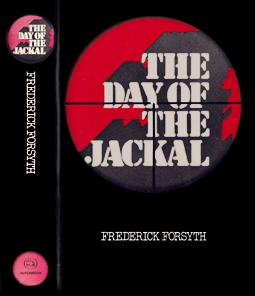
The Day of the Jackal (1971) is a political thriller novel by English author Frederick Forsyth about a professional assassin who is contracted by the OAS, a French dissident paramilitary organisation, to kill Charles de Gaulle, the President of France.
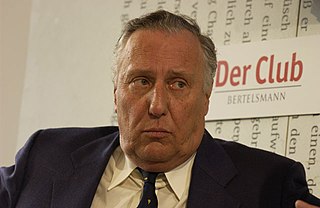
Frederick McCarthy Forsyth is an English novelist and journalist. He is best known for thrillers such as The Day of the Jackal, The Odessa File, The Fourth Protocol, The Dogs of War, The Devil's Alternative, The Fist of God, Icon, The Veteran, Avenger, The Afghan, The Cobra and The Kill List. Forsyth's works frequently appear on best-sellers lists and more than a dozen of his titles have been adapted to film. By 2006, he had sold more than 70 million books in more than 30 languages.
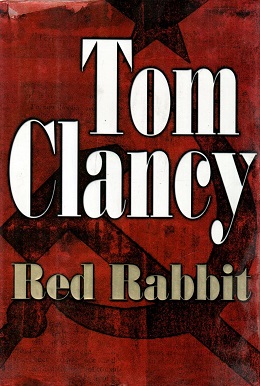
Red Rabbit is a spy thriller novel, written by Tom Clancy and released on August 5, 2002. The plot occurs a few months after the events of Patriot Games (1987), and incorporates the 1981 assassination attempt on Pope John Paul II. Main character Jack Ryan, now an analyst for the Central Intelligence Agency, takes part in the extraction of a Soviet defector who knows of a KGB plot to kill the pontiff. The book debuted at number one on The New York Times Best Seller list.
The Service de documentation extérieure et de contre-espionnage, abbreviated SDECE, was France's external intelligence agency from 6 November 1944 to 2 April 1982, when it was replaced by the Directorate-General for External Security (DGSE). It should not be confused with the Deuxième Bureau which was intended to pursue purely military intelligence.

Jason Bourne is the title character and the protagonist in a series of novels and subsequent film adaptations. The character was created by novelist Robert Ludlum. He first appeared in the novel The Bourne Identity (1980), which was adapted for television in 1988. The novel was adapted into a feature film of the same name in 2002 and starred Matt Damon in the lead role.

Jean-Marie Bastien-Thiry was a French Air Force lieutenant colonel, military air-weaponry engineer and the creator of the Nord SS.10/SS.11 missiles. Bastien-Thiry attempted to assassinate French president Charles de Gaulle on 22 August 1962 in retaliation for de Gaulle's decision to accept Algerian independence. Bastien-Thiry was the last person to be executed by firing squad in France.
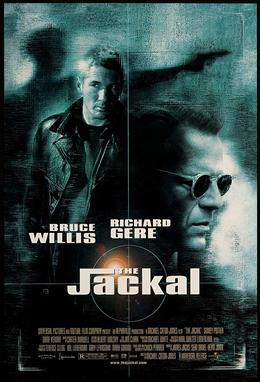
The Jackal is a 1997 American action thriller film directed by Michael Caton-Jones, and starring Bruce Willis, Richard Gere, and Sidney Poitier in his final theatrically released film role. The film involves the hunt for a paid assassin. It is a loose take on the 1973 film The Day of the Jackal, which starred Edward Fox, and was based on the 1971 novel of the same name by Frederick Forsyth. Although the film earned mostly negative reviews from critics, it was a commercial success and grossed $159.3 million worldwide against a $60 million budget.

The Odessa File is a thriller by English writer Frederick Forsyth, first published in 1972, about the adventures of a young German reporter attempting to discover the location of a former SS concentration-camp commander.

The Death of Achilles is the fourth novel in the Erast Fandorin historical detective series by Boris Akunin. Its subtitle is детектив о наемном убийце. It was originally published in Russian in 1998; the English translation was released in 2006.

The Odessa File is an 1974 thriller film, adapted from the 1972 novel of the same name by Frederick Forsyth, about a reporter's investigation of a neo-Nazi political-industrial network in post-Second World War West Germany. The film stars Jon Voight, Mary Tamm, Maximilian Schell and Maria Schell and was directed by Ronald Neame, with a score by Andrew Lloyd Webber. It was the only film that the Schell siblings made together.
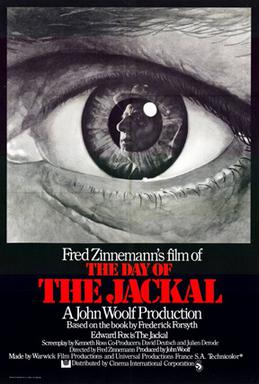
The Day of the Jackal is a 1973 political thriller film directed by Fred Zinnemann and starring Edward Fox and Michael Lonsdale. Based on the 1971 novel of the same name by Frederick Forsyth, the film is about a professional assassin known only as the "Jackal" who is hired to assassinate French president Charles de Gaulle in the summer of 1963.
A political thriller is a thriller that is set against the backdrop of a political power struggle, high stakes and suspense is the core of the story. The genre often forces the audiences to consider and understand the importance of politics. The stakes in these stories are immense, and the fate of a country is often in the hands of one individual. Political corruption, organized crime, terrorism, and warfare are common themes.

The Bourne Ultimatum is the third Jason Bourne novel written by Robert Ludlum and a sequel to The Bourne Supremacy (1986). First published in 1990, it was the last Bourne novel to be written by Ludlum himself. Eric Van Lustbader wrote a sequel titled The Bourne Legacy fourteen years later.

Where the Spies Are is a 1966 British comedy adventure film directed by Val Guest and starring David Niven, Françoise Dorléac, John Le Mesurier, Cyril Cusack and Richard Marner. It was based on the 1964 James Leasor book Passport to Oblivion, which was also the working title of the film. MGM intended to make a Jason Love film series, but the idea was shelved.

Ilich Ramírez Sánchez, also known as Carlos the Jackal or simply Carlos, is a Venezuelan who conducted a series of assassinations and terrorist bombings from 1973 to 1985. A committed Marxist–Leninist, Ramírez Sánchez was one of the most notorious political terrorists of his era, protected and supported by the Stasi and the KGB. After several bungled bombings, Ramírez Sánchez led the 1975 raid on the Organization of the Petroleum Exporting Countries (OPEC) headquarters in Vienna, during which three people were killed. He and five others demanded a plane and flew with a number of hostages to Libya.

August 1? is a 1988 Indian Malayalam language action thriller film directed by Sibi Malayil, written by S. N. Swamy, starring Mammootty, Sukumaran and Captain Raju. The film was produced and distributed by M. Mani under the banner of Sunitha Productions. August 1? is loosely based on the 1971 British novel The Day of the Jackal, by Frederick Forsyth which had inspired a film of the same name. The film was a commercial success and is considered one of the best investigative thrillers in Malayalam cinema.
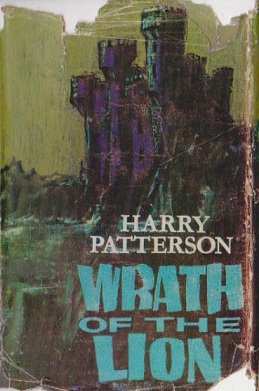
Wrath of the Lion is a 1964 thriller novel by Jack Higgins. Like the more famous The Day of the Jackal by Frederick Forsyth, the background to Higgins' book is the last ditch effort by the OAS, a French dissident paramilitary organisation, to take revenge on Charles de Gaulle, the President of France, for his having granted independence to Algeria and ended French rule there.

















